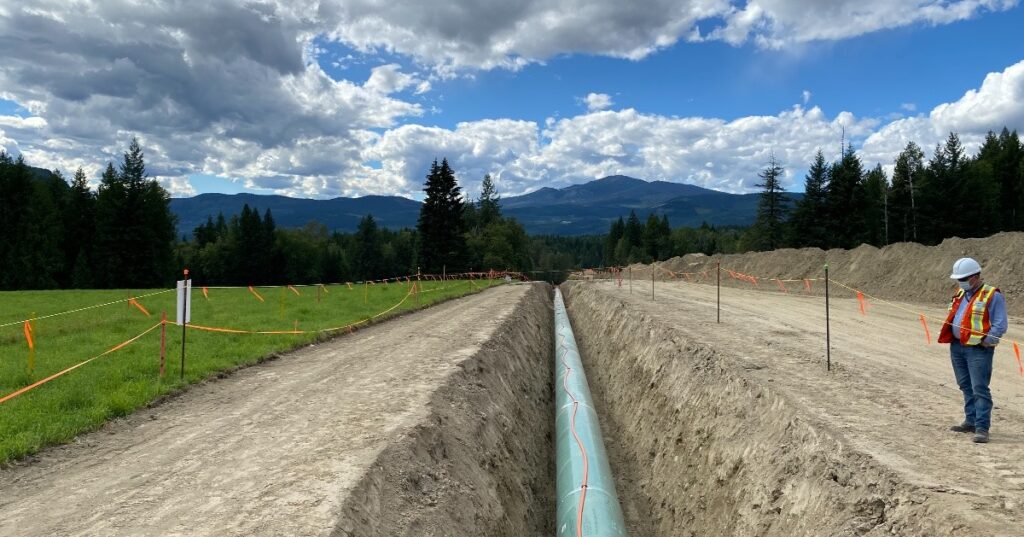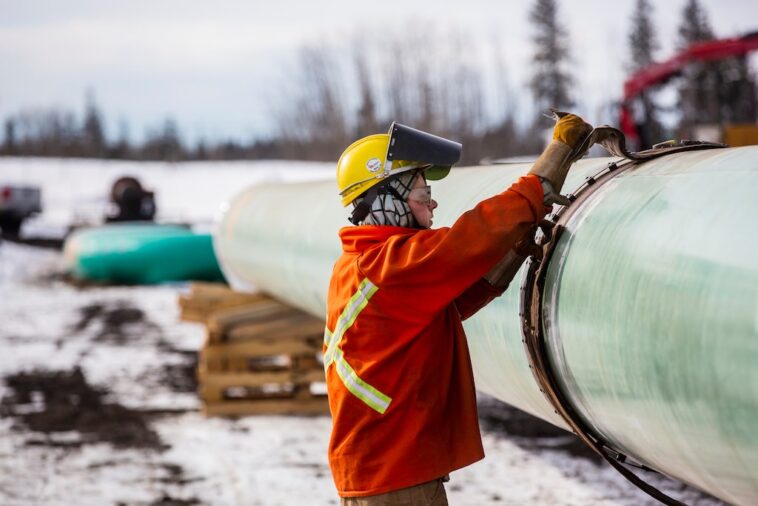The Trans Mountain oil pipeline expansion project received approval this month to resume work in a wetland near Abbotsford in the Lower Mainland. This decision followed a temporary stop-work order mandated by the Canada Energy Regulator (CER) in October due to environmental and safety concerns within an 800-metre area. The CER charged Trans Mountain with violations such as insufficient fencing to protect amphibians, unapproved vegetation clearing, and dumping debris like “destroyed matting, downed signage, metal equipment components, food waste and rags scattered within surface water.”
The company has since addressed the violations and said in an emailed statement to Reuters that “Trans Mountain has received a notice to resume work from the Canada Energy Regulator … Trans Mountain corrected all non-compliances in the region and is conducting safety inspections of all active sites to prevent any re-occurrence.”
This episode is the latest in a series of challenges faced by the 890,000 barrel-per-day expansion project, aimed at tripling the volume of oil from Alberta into BC’s coastal refineries and onto markets in Asia. In 2021, Trans Mountain was ordered to halt construction for four months along a one-kilometre stretch to protect hummingbird nests in Burnaby, BC.

At the time, the Community Nest Finding Network (CNFN) alerted federal wildlife officers that Trans Mountain workers had cut down trees with hummingbird and robin nests in violation of the Migratory Birds Convention Act. The company was initially charged a $88,000 fine that was later reduced to $4000 by the Canada Energy Regulator despite the “unacceptable” harm inflicted on migratory birds.

The controversial Trans Mountain pipeline was purchased by the Canadian federal government in 2018 and, to date, has cost the taxpayer $30.9 billion – nearly four times the initial estimates. The project is estimated to begin operating in 2024, about a year behind schedule. Environmental advocates worry that once operational, the expanded pipeline project will have vast detrimental effects on the environment, particularly marine wildlife like orcas and salmon, as oil tanker traffic is expected to increase on BC’s coast by 700%.
West Coast Now published a story earlier this month about Vancouver Island coastal communities’ growing concern about the opening of the new Trans Mountain pipeline and the rise of oil tanker traffic in their waters. Many are calling for a ban on oil tankers during stormy waters to prevent catastrophic spills from occurring.







